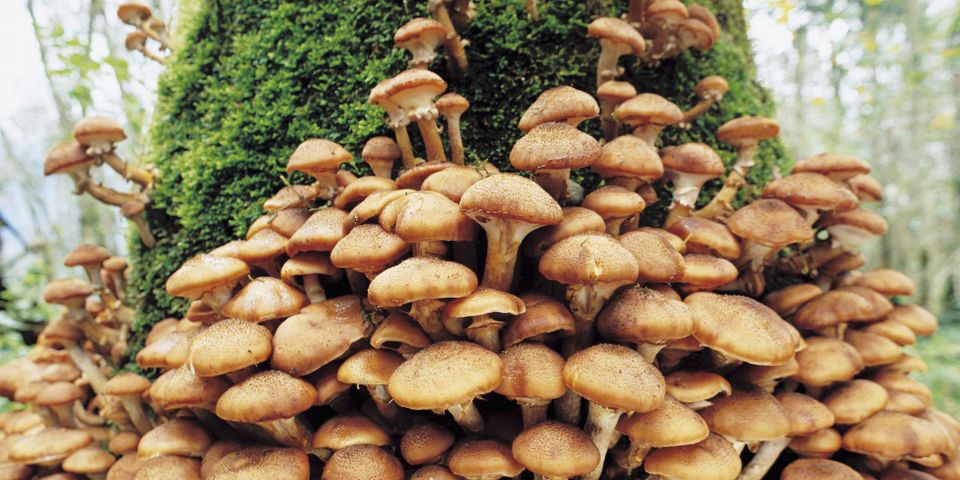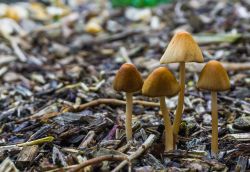
In the spring and fall, many foragers explore the wilds of Nebraska to find edible fungi, such as oyster and morel mushrooms. But if you spot fungal growth popping up in your yard, you can’t assume it’s an edible variety. Instead, it could be an invasive species that detracts from the look of your landscape. To help you improve your lawn maintenance and tree care, here’s what to know about mushroom growth.
Why Do Mushrooms Grow in My Yard?
It doesn’t take much for mushrooms to start growing. If fungal spores have access to low-light and high-moisture environments, they can grow within as little as 48 hours. These mushrooms will continue to grow by breaking down organic materials found in the soil, such as those left behind by a tree stump.
Which Types of Fungus Grow in Nebraska?
Some common species of mushroom found in Nebraska yards include:
- Coprinus: This species is found in lawns and tends to produce an “inky” head as a result of decomposing materials.
- Conocybe: Commonly found growing in fresh sod and new lawns, this fungus is often identified by its slender stems and cone-shaped caps.
- Armillaria mellea: This mushroom species typically fruits at the base of a tree in thick clusters. Since this fungus feeds on decomposing wood, it’s growth can be a sign that a tree is sick or dying.
Are Mushrooms Bad for My Landscape?
 In general, mushrooms are not bad for lawns, as they help break down organic materials and support microbial diversity in the soil. However, some species, such as the armillaria mellea, can be harmful to trees by speeding up the decaying process.
In general, mushrooms are not bad for lawns, as they help break down organic materials and support microbial diversity in the soil. However, some species, such as the armillaria mellea, can be harmful to trees by speeding up the decaying process.
Many mushrooms can also be poisonous, which can put the health of your home at risk—especially if you have curious children or pets that roam the yard. These dangers, as well as the unappealing look of mushrooms, are why many homeowners include fungal control as part of their lawn maintenance activities.
How Can You Control Mushroom Growth?
Fungicide products can kill mushrooms but may end up damaging other healthy parts of the lawn as well. As such, it’s better to prevent mushroom growth by routinely detaching and aerating the soil to deter moisture accumulation. You might also use nitrogen-rich lawn fertilizer, as this nutrient will quickly break down organic matter that would feed the fungus.
When you spot invasive plant life in the yard, turn to Eden Lawn Care & Tree Service for comprehensive support. Providing landscaping and lawn maintenance services in Lincoln, NE, for more than three decades, this team deters fungal growth, prevents plant disease, and eliminates weeds and insects. You can also rely on these landscapers to keep trees healthy with advanced trimming and stump grinding services. Visit these lawn maintenance and tree care specialists online to learn more about their capabilities or call (402) 488-3177 to schedule convenient service.
About the Business
Have a question? Ask the experts!
Send your question

